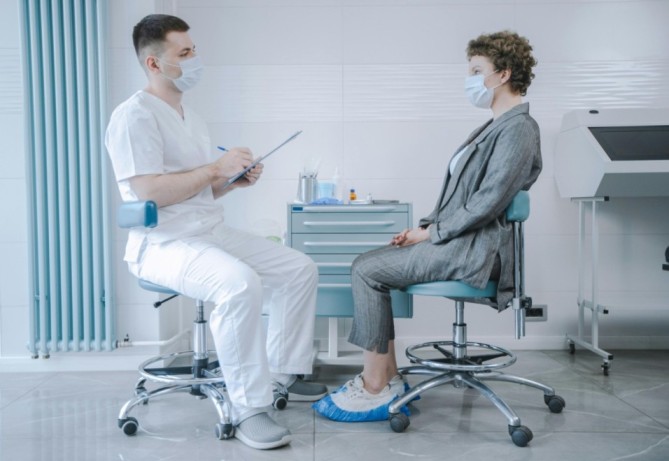Benefits of long-term mental health facilities in PA
Learn about the long-term mental health facilities in PA that provide systematic care, treatment, medication, and long recovery.
For many people experiencing severe mental health disorders, a short-term intervention may not work. Long-term mental health facilities in Pennsylvania serve the purpose of offering extended care under a formal, structured setup for achieving permanence in healing and personal development. Various benefits of the long-term mental health care, treatment process followed, and exactly why it may be necessary when a person deals with chronic, severe mental disorders are discussed here.
What is a Long-Term Mental Health Facility?
Long-term facilities for mental health are institutions meant to provide long-term, structured, professional treatment in cases of severe or continuous mental health problems. These provide a safe, supportive atmosphere under which individuals undergo further therapeutic proceedings, management of medication, and building skills necessary for them to get back into a stable life.
While many short-term programs focus only on crisis intervention, long-term facilities provide seamless, continuous, and personalized treatment plans tailored according to each unique case. Coping mechanisms and improving emotional wellness to attain stability over the long term are prepared with licensed therapists, psychiatrists, and other support staff.
Understanding Long-Term Mental Health Facilities In PA
Long-term mental health facilities are highly specialized treatment centers designed to meet the needs of those whose conditions either warrant or require extended, regulated treatment.While short-term programs may focus on immediate crisis stabilization, these facilities offer long-term treatment approaches to get to the root of the mental health struggle for long-term recovery and reintegration back into daily life.
These facilities provide individualized therapy, medication management, life skills development programs, and social support to assist patients in returning to a stable, independent state. The aim is the provision of a secure, non-judgmental environment that can provide well-rounded, continuous care for each patient.
Common Mental Health Disorders Treated In PA Area
Major Depressive & Anxiety Disorder: Pervasive sad mood or feelings of hopelessness and/or overwhelming anxiety that interferes with various activities.
Bipolar Disorder: Characterized by extreme mood swings, including episodes of depression and mania, which need long-term treatment.
Schizophrenia & Psychotic Disorders: These are disorders affecting perception, thinking, and emotions; most of the time, structured care is necessary.
PTSD & Trauma-Related Disorders: Long-term effects of trauma, abuse, or life-threatening events that cause symptoms distressing to the individual.
Substance Abuse & Dual Diagnosis Cases: Mental health disorders that occur along with substance use disorders and require integrated treatment.
OCD & Personality Disorders: These are long-standing disorders affecting the thinking pattern, emotions, and behaviors of a person that make impossible the continuance of daily life.
Long-term mental health facilities provide much-needed stability, guidance, and structured support to ensure an individual receives the care required to thrive.

Key Benefits of Long-Term Mental Health Facilities
1. Structured & Safe Environment
Long-term facilities provide a stable, enabling environment wherein patients enjoy equal privileges in the management of their mental health. Consistency helps an individual establish good routines and coping skills.
2. Specialized Therapy & Treatment Plans
The long-term facilities set up a treatment plan for their patients. It evolves over time. Their therapy may also include:
Family Counseling
Cognitive Behavioral Therapy
Dialectical Behavior Therapy
Trauma-Informed Care
Mindfulness and Stress Management
Holistic Therapy Approaches
3. Medication Management & Monitoring
The long-term mental health facilities assure safety and consistency regarding medication management for patients who need it. It will be done by monitoring the side effects of the medicine, adjusting the prescription accordingly, and following up on the prescribed medication.
4. Skill Building for Independence
The program helps residents become independent by teaching themselves basic life skills; however, it is not limited to the following:
Stress & Anger Management
Healthy Communication
Self-Care & Hygiene
Job Readiness & Social Skills
Budgeting & Financial Planning
Cooking & Nutrition for Wellness
5. Relapse & Hospitalization Prevention
Most people in long-term facilities have had multiple hospitalizations or recurrences. Long-term care helps individuals maintain support with less likelihood of regression.
6. Solid Support System
During the long-term care treatment, the connection developed among peers and therapists becomes very strong, which continues beyond the treatment phase as a strong support system.
7. Family Involvement & Education
A lot of the long-term facilities offer family counseling and education to the relatives in order to understand the mental health problems their family member faces. This further helps in strong family support and good communication networks.
8. Holistic Recovery
Most incorporate alternative holistic therapies, for example:
Art & Music Therapy
Yoga & Meditation
Exercise & Outdoor Activities
Nutritional Counseling The activities supplement psychological and emotional improvement with physical well-being.
Choosing the Correct Long-Term Facility in PA for Your Mental Health
The very first, yet most important move towards successful rehabilitation and long-lasting stability is searching out a long-term mental health facility in Pennsylvania. The needs of each individual are different, and the identification of a facility compatible with those specific needs can spell the difference between recovery and mere existence. These are some factors to consider:
Accreditation & Licensing
A decent mental health facility should be accredited and certified by relevant state and national organizations. Accreditations ensure that the facility follows strict health and safety regulations in the provision of quality care. Check for certification from organizations such as The Joint Commission or the Commission on Accreditation of Rehabilitation Facilities (CARF).
Types of Therapy Offered
Different ailments are in need of different treatments, and the evidence-based therapies in which the facility specializes should range from CBT, DBT, trauma-focused therapy, and holistic treatments. A wide range of therapies helps to ensure patients will get the treatment that will best fit their needs.
Specialization
Some specialize in treating trauma, PTSD, schizophrenia, personality disorders, and dual diagnosis, among others. Trying to find a facility well-versed in treating your condition can ensure better treatment outcomes.
Aftercare Support
Long-term recovery goes way beyond the walls of the facility. A good program will keep aftercare support in place for a person transitioning easily into daily life through outpatient counseling, medication management, and support groups.
Success Rates & Reviews: Research the facility’s success rate by reading testimonials, reviews, and outcome data. This also involves consulting with other patients who have been through the facility or their family members to understand better how the treatment program has been helpful.
Pay close attention to these variables and you will be able to make a selection of the appropriate long-term mental health facility in PA to answer your needs on the road to recoveries.

Why Choose BGH Clinic PA for Long-Term Mental Health Benefits?
At BGH Clinic PA, we provide comprehensive, compassionate, and expert-led mental health care designed to promote long-term stability and well-being. We do understand that recoveries from mental health are not all the same for everybody, and because of that, we offer evidence-based treatments personalized by the needs of every individual.
What Sets Us Apart?
 Expert & Licensed Therapists – We have our team composed of highly trained mental health professionals who specialize in the delivery of long-term mental health care to guarantee that you receive the best support and guidance.
Expert & Licensed Therapists – We have our team composed of highly trained mental health professionals who specialize in the delivery of long-term mental health care to guarantee that you receive the best support and guidance.
 Holistic & Evidence-Based Approach: We implement a range of evidence-based therapeutic approaches, including Cognitive Behavioral Therapy (CBT), Dialectical Behavior Therapy (DBT), trauma-informed practices, and mindfulness skills to promote emotional resilience and long-lasting recovery.
Holistic & Evidence-Based Approach: We implement a range of evidence-based therapeutic approaches, including Cognitive Behavioral Therapy (CBT), Dialectical Behavior Therapy (DBT), trauma-informed practices, and mindfulness skills to promote emotional resilience and long-lasting recovery.
Comprehensive Treatment Plans: We design treatment in our facility that is both highly structured and very flexible, from individual counseling and group therapy to family involvement and medication management that will ensure sustainable improvements in one’s mental well-being.
Safety & Support: A no-judgment section where one may be safe, embraced, and uniquely focused on one’s journey toward recovery.
Insurance & Accessibility: We accept Medicaid, Geisinger Health Plan, UPMC Health Plan, and Cigna to make quality mental health care as affordable and accessible as possible.
If you or a loved one requires long-term mental health care in Pennsylvania, BGH Clinic PA is here to help.
FAQs: Long-Term Mental Health Facilities in PA
Q: How long do people stay in a long-term mental health facility?
A: It can range from several months to over a year, depending on each person’s needs.
Q: Can I visit my loved one in a long-term facility?
A: Yes! Most welcome family involvement by allowing scheduled visits and family therapy sessions.
Q: Do long-term mental health facilities take insurance?
A: Yes, many of our facilities take insurance, including Medicaid, Geisinger Health Plan, UPMC Health Plan, and Cigna. Always check with the facility ahead of time.
Q: What happens after a long-term mental health program is complete?
A: Aftercare planning includes outpatient therapy, continued medication management, and support groups to ease back into daily life.
Q: How can I determine whether long-term mental health care is right for me?
A: If you or a loved one has continuous, debilitating mental health issues that are affecting daily functioning, then long-term care could be a very good option. Speaking with a mental health professional will better determine the course of action.
Q: How does long-term mental health treatment differ from the short-term variety?
A: Short-term care is designed for immediate crisis care, while the long-term will offer continued therapy, support, and skill development for long-term recovery.
Q: Is it possible to be treated as an outpatient for long-term mental health?
A: Yes! Facilities do offer long-term outpatient options that allow them to continue support but still attend to daily routine activities.
In the state of Pennsylvania, long-term mental health facilities offer the extended time, resources, and professional care one may need to stabilize and actually begin to heal. Long-term facilities can offer a structured environment, therapy, medication management, and other life skills for long-term success.
Long-term treatment for a chronic mental health condition might be life-changing for you or your loved one.
Call The BGH Clinic PA now at 888-625-7432 today for further discussions about long-term mental health facilities.